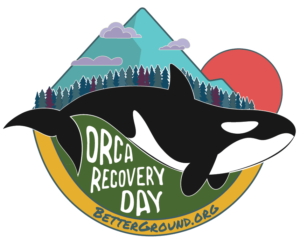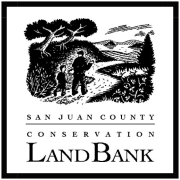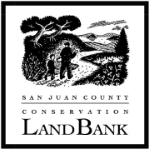 This Orca Recovery Day, take action!
This Orca Recovery Day, take action!
Join The San Juan Islands Conservation District and your Conservation Land Bank online and/or in the field this year! We’ll highlight orca, salmon, and eelgrass recovery efforts in the San Juan Islands via an educational Zoom speaker series as well as provide an opportunity to get your hands in the dirt with a volunteer planting at Turtleback Mountain Preserve on Orcas Island. Save your spot today! E-mail Kelsey Kittleson at kelsey@sjicd.org
Oct. 12: 5:30-7:00pm –Dr. Deborah Giles, Research Director | Wild Orca and Whale Researcher, University of Washington
Dr. Deborah Giles is an expert on the Southern Resident killer whales. Starting as a research assistant in 2005, then the subject of her graduate studies and her entire professional career since receiving her PhD, making Giles one of the few scientists to have focused almost exclusively on this iconic population. Giles serves as the Science & Research Director for Wild Orca, and as a Research Scientist at the University of Washington—monitoring the Southern Resident killer whales’ health through non-invasive sampling with Eba, her highly-trained poop detection dog.
Giles collaborates with government scientists and other researchers to enhance understanding of the many impacts on these endangered whales from overfishing, pollution and noise. She represents their interests with policymakers, and is frequently interviewed by print and broadcast media as one of the principal voices calling for the recovery of these endangered orcas.
Oct. 13: 5:30-7:00pm – Amy Trainer, Environmental Policy Director for the Swinomish Indian Tribal Community | Salmon Recovery on the Skagit River
Amy Trainer serves as the Environmental Policy Director for the Swinomish Indian Tribal Community where she provides technical and policy advice to the Tribe’s Senate, and works on a variety of local, state, federal, tribal and international fisheries and habitat policy matters. She is an appointed Commissioner on the international Skagit Environmental Endowment Commission, and is an affiliate member of the Skagit Climate Science Consortium.
From 2010-2015 Amy served as the executive director of the Environmental Action Committee of West Marin where she championed the congressional wilderness designation of Drakes Estero, the ecological heart of Point Reyes National Seashore and only marine wilderness area on the West Coast. She has led statewide coastal protection advocacy efforts in the California Legislature, including the addition of civil rights and environmental justice language to the California Coastal Protection Act on its 40th Anniversary in 2016.
Amy is a former practicing land use and environmental lawyer who helped redevelop the urban core of Kansas City, Missouri, served as a non-profit staff attorney in Friday Harbor where she protected endangered Southern Resident Killer Whales, and as a special advisor to the Makah Indian Tribe of Neah Bay where she was instrumental in establishing the Makah Tribal Office of Marine Affairs. As a land trust executive director in Colorado, she conserved hundreds of acres of land and senior water rights and received an award for implementing sustainable ranching practices. Amy is grateful for the opportunity to bring her passion for protecting wildlands, Killer Whales, the Skagit River and the homelands of the Coast Salish people.
Oct 14: 5:30-7:00pm – Dr. S. Wyllie-Echeverria, Yuki Wilmerding, Isabella Brown and Mike Ramsey | Restoring Damaged and Declining Eelgrass in the San Juan Archipelago: A Pioneering Program Using Seeds
Eelgrass (Zostera marina) is a foundational species in the Salish Sea. Thriving meadows of these flowering plants provide shelter, spawning and foraging sites and food for invertebrates, fish, and waterfowl in the nearshore region. Like other flowering plants, eelgrass, after pollination, fertilization, and seed development, disperses a yearly seed rain. In addition to dropping within existing patches, seeds can also be carried by ocean currents to distant sites and if conditions are suitable seedlings will sprout and new patches will form. Recognizing the value of seed development and dispersal as a restorative technique, scientists throughout the range of eelgrass in the Northern Hemisphere began designing programs to restore damaged and declining eelgrass sites with seeds.
In the summer of 2020, we launched a program to restore eelgrass in the nearshore region of Bell Point in Garrison Bay. The objective of this work is to pioneer an effort to restore declining eelgrass meadows in the San Juan Archipelago.
In this presentation we will share the first steps in this program which include defining the timing of peak seed release, designing of a culture system which allows the capture of ripe seeds and experimenting with techniques designed to deliver seeds to our restoration site.


